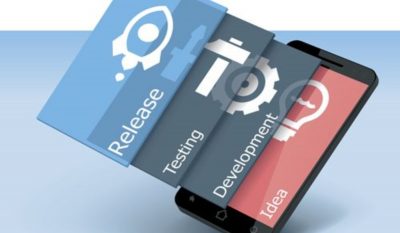Faster the process, quicker the work is done. This is the rule that works for today’s generation. May that be online or the on the spot task that needs physical presence; work completed at its earliest is the need of the time.
Mobile devices have made the processes easy to adapt, possibly anywhere. Which means every individual holds his cell phone with him anywhere he moves. Thus, making provisions to operate your cell phones anywhere we go can be an excellent idea. Installing the necessary apps according to the requirement of the place and time is the perfect option. This will again contribute to zero-contact communication.
For example, consider a restaurant app that holds the names of all the dishes listed in its complete menu along with the allocation for the tables. Thus, even before you enter the restaurant, the items of your choice will be already in the process of cooking, and, in no time, will be served to you on your table. Such practices help save the time of both parties, the one who is eating, and the one who is serving. This can also facilitate repeat orders for the same customers next time they visit, without even looking at the menu. One more added advantage to this can be maintaining social distancing. Amid the COVID-19, having your favorite food is as important as protecting oneself from the pandemic.
The above example describes how important it is to have an application designed for every other daily task we perform.
Thus, accelerating app solutions and keeping in mind the automation of the process, is what this generation demands.
Ways to accelerate app solutions with automation
Performing mobile application testing is more complicated than web application testing. While performing testing, the other factors that need to be taken into consideration are cost optimization and market readiness, as the app should be supporting various devices, software, OS platforms, and networks. Also, keeping in mind the constant updates of operating systems, rapidly growing new devices, and the user’s expectations of new features will require additional test cycles.
Mobile testing depends on the following areas:
- Type of application—native, hybrid or web
- Analyzing across multiple permutations and combinations for Oss (operating systems), devices, and compliances
- Analyzing across regions, networks, and connectivity
- Managing competitiveness and differentiation with timely updates, bug fixes, and new features
- Periodic test-run across new OS updates, new devices, and partner tie-ups
Quality analysis of any mobile application is done in either of the two ways—manually or automatically.
Future of application automation
Technology is constantly changing. The enterprise mobility landscape is continuously growing; the two factors that will also keep on progressing include the growth of mobile applications and the use of automation and machine learning. Walking with both technologies, hand-in-hand, will reap the best benefits for mobile administrators, testers, and engineers alike.
It is not only about focusing on the return of investment but also maintaining consistency and quality to ensure seamless workflows.
A little bug can cause a delay in the processing of an app. Even if the reason for automation testing is not specified singularly, companies can have different requirements depending on their needs.
Different platforms have different capabilities, and teams who plan to move forward with automated app testing are ideally matched to an all-encompassing range of abilities. By bringing testing capabilities to one device cloud, it enables scripts to pull-off and run smoothly, ergo, half of the work is done before the quality is even considered.
Open-source tools such as Appium and commercial solutions from IBM, Tricentis, and SOASTA, stand-alone as unique research devices. But finding a way to communicate and improve the testing experience with one entry point and a reference position puts the control back in the hands of engineers.
Everyone wants a return on investment, but success is also defined by increased productivity and growth. Automating mobile application testing does not improve the consistency of the corporate technology environment; it adds a new workflow to the team by allowing developers to refocus their attention on specific mission-critical tasks.
Closing thoughts
Mobile app not only helps to automate a portion of the customer support system but also plays a major role in providing faster and more personalized services. Another advantage of the mobile app platform is it lets customers communicate more effectively through multiple channels.













